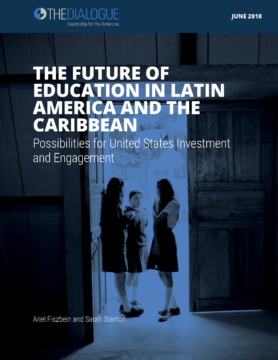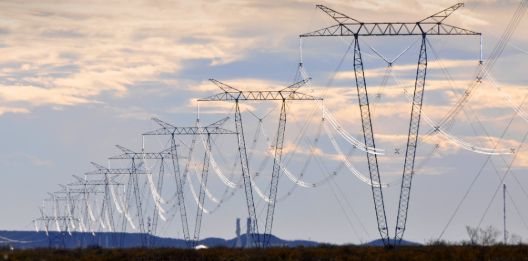Cuba 1.5?
When Yoani Sánchez started blogging, she probably did not anticipate the worldwide impact that her portrayal of life in Havana would have.
On March 4, 2021, the Inter-American Dialogue hosted the online event “Connectivity in the Americas.”
The event featured opening remarks from Michael Shifter, the president of the Inter-American Dialogue, who also served as the moderator for the event. The panel included Pamela Gidi, vice minister of telecommunications for the government of Chile; Ricardo Ruiz, vice president of international operations at SBA Communications; Ryan Johnson, senior director of global market access & government affairs for Latin America at Viasat Inc; and Nathalia Foditsch, senior policy and regulatory specialist at the Alliance for Affordable Internet, an initiative of the World Wide Web Foundation.
“Connecting the unconnected” has been a goal of regulators and policymakers for decades now, but with the Covid-19 pandemic, this has taken on even more importance and urgency. Millions of people lack access to technologies that would otherwise provide for educational opportunities, government services, jobs and other necessities. Vulnerable populations that were already struggling in the region are at risk of falling even further behind.
From Gidi’s perspective, there are multiple obstacles to closing the digital gap, including the high cost of deployment and infrastructure and creating regulations that support and keep up with technology advancement. Moreover, while focusing on issues such as coverage, access, quality, and use gaps, Gidi stressed the importance of being realistic about the social and economic disparities that need to be addressed to tackle longstanding issues of connectivity.
Panelists sympathized with the grave consequences of being disconnected from the digital economy during the pandemic. Not only are many in the region completely disconnected, but Ruiz pointed out that the 25-40 percent uptick in traffic for mobile operators, primarily coming from major cities, is also deviating attention from other parts of countries, known as digital deserts. Foditsch added that the financial hurdles to addressing those deserts are significant. “The region needs $51 billion to be connected fully by 2030,” she said.
Johnson noted that companies need to continually reinvest in their networks to simply keep up with demand and eventually expand. Johnson’s company, Viasat has sought to “reach people with affordable broadband.” The satellite provider of Internet service has implemented programs connecting previously underserved communities by setting up WiFi services in rural areas. But these programs alone cannot reach everyone in need, and other stakeholders must get involved in order to find innovative solutions to complex problems.
Panelists agreed that users will consume more and more data moving forward. Thus, considerations for future connectivity must be broad and expansive.
Foditsch shared that one of her organization’s goals is to have “meaningful connectivity” for all people in the world. This would mean everyone could connect to the internet every day, through an appropriate device, with enough data and a fast connection (4G speeds at a minimum).
Those speeds present a challenge because, as Ruiz noted, 60 percent of Latin Americans do not have access to 4G currently, a population that is generally living in less privileged communities and suffers most from lack of connectivity. Additionally, Foditsch said her organization has set a 1:2 target, where one GB of mobile broadband costs no more than 2 percent of per capita income in a given area. This been adopted by the UN Broadband Commission. These goals, while seemingly out of reach, set clear standards and give policymakers thresholds to set out to achieve.
Ruiz reminded participants that “the industry is going to evolve,” and overall, panelists agreed that collaboration, competition and regulation are key components of the journey towards universal connectivity. For example, Gidi advised that governments need to facilitate investment and competition and intervene where the market does not meet needs, but ultimately, all sectors need to engage in open dialogue with each other to make real strides in connecting the most vulnerable and underserved populations.
When Yoani Sánchez started blogging, she probably did not anticipate the worldwide impact that her portrayal of life in Havana would have.
A new report from the Education program analyzes trends in education policy and outcomes, as well as in development assistance and investment. It identifies spaces for US-LAC partnership for new and continued engagement.
How are governments and companies in the region integrating digital technologies in the power sector?
 Main Photo: Brazil at Night (NASA, International Space Station, 06/12/14) | NASA / CC BY-NC 2.0
Main Photo: Brazil at Night (NASA, International Space Station, 06/12/14) | NASA / CC BY-NC 2.0

